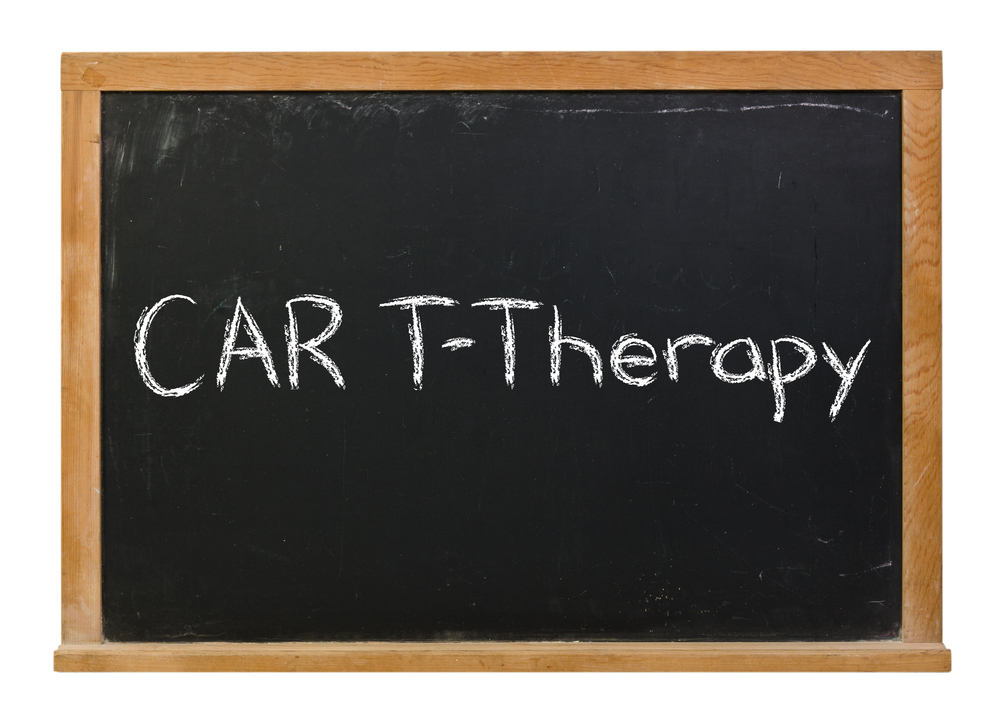New CAR T-cell Therapy Shows Early Promise Against Multiple Myeloma in Lab Study

A new CAR T-cell therapy for people with multiple myeloma has been successfully created and tested in cell-based experiments and a mouse model, a study reported.
This therapy targets a protein called CD229, produced on the surface of both myeloma cells and cancer stem cells — the source of treatment-resistant cells that may lead to disease recurrence — potentially providing long-lasting responses.
The study, “CD229 CAR T cells eliminate multiple myeloma and tumor propagating cells without fratricide,” was published in Nature Communications.
Immunotherapies such as chimeric antigen receptor (CAR) T-cell therapy — which activates a person’s own immune system to fight their cancer — has successfully treated many types of blood cancers, including multiple myeloma.
In CAR T-cell therapy, a patient’s own T-cells are removed, genetically modified to produce a protein receptor on their surface that, when infused back to the patient, recognizes and attacks cancer cells.
The most common receptor used in multiple myeloma-specific CAR T-cell therapies targets a protein known as B-cell maturation antigen (BCMA) — a cell surface protein universally expressed on malignant multiple myeloma cells.
Despite these therapies resulting in high overall response rates for multiple myeloma, some patients experience a relapse following treatment.
To address this, a team of researchers at the University of Utah developed an alternative CAR T-cell therapy that produces a different receptor targeting a protein called CD229, also found on multiple myeloma cells.
The team is led by Djordje Atanackovic, MD, a university physician-scientist who in 2011 identified CD229 as a potential target for multiple myeloma. CD229 is produced on multiple myeloma cells as well as cancer stem cells. These stem cells can progress to mature cancer cells, leading to treatment resistance and disease recurrence.
“We were dismayed that although some of our patients respond quite well to currently available immunotherapies, they relapsed as early as one year after treatment,” Atanackovic said in a press release.
“We thought if we could target every last cancer cell in a patient’s body, including the cancer stem cell, this could make the critical difference and yield more durable, deeper responses to treatment,” he added.
Building on the earlier results, the researchers moved to complete the engineering and laboratory work needed to create and test an anti-CD229 CAR T-cell therapy. They created and tested a series of receptor proteins targeting CD229, and the best candidate, named 2D3, was chosen for further experiments.
This receptor protein tightly bound to CD229 and failed to bind to a panel of 5,300 human surface proteins, demonstrating its selectivity. It also bound to cancer cells but not to healthy cells, and to multiple myeloma cells isolated from the bone marrow of 20 people with newly diagnosed, or relapsed or untreatable, disease.
The 2D3 receptor protein was then added to T-cells to create anti-CD229 CAR T-cell therapy. Tests found that these modified cells did not attack other modified CAR T-cells (fratricide).
While multiple myeloma cell-based tests revealed that this therapy was effective at killing two types of myeloma cancer cells, it was also toxic to cancer cells isolated from three patients with plasma cell leukemia, an aggressive form of multiple myeloma.
In mice grafted with two types of myeloma cells and treated with CD229 CAR T-cell therapy, the cancer cells were eliminated, cancer blood markers were reduced, and the mice experienced prolonged survival.
Importantly, in a final experiment, cancer stem cells isolated from the bone marrow of seven patients were significantly reduced following CD229 CAR T-cell treatment, an effect that was not observed with anti-BCMA CAR T-cells.
“These findings indicate that CD229 CAR T cells may be an effective treatment for patients with MM [multiple myeloma],” the scientists wrote.
They plan to further investigate the therapy’s potential to support clinical trials to determine if it can be safely used in people.






